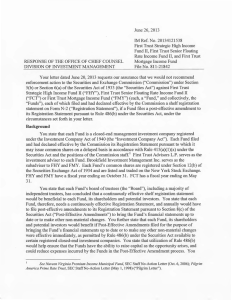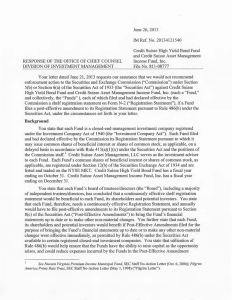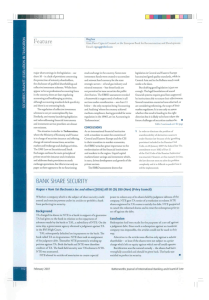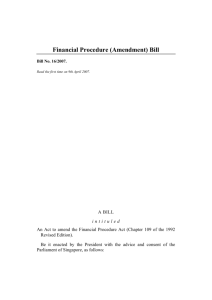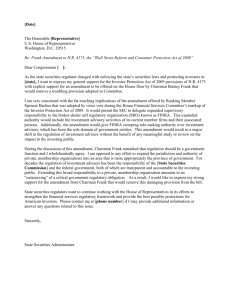June 26, 2013 IM Ref. No. 20134121535 Aberdeen Asia-Pacific Income Fund,
advertisement
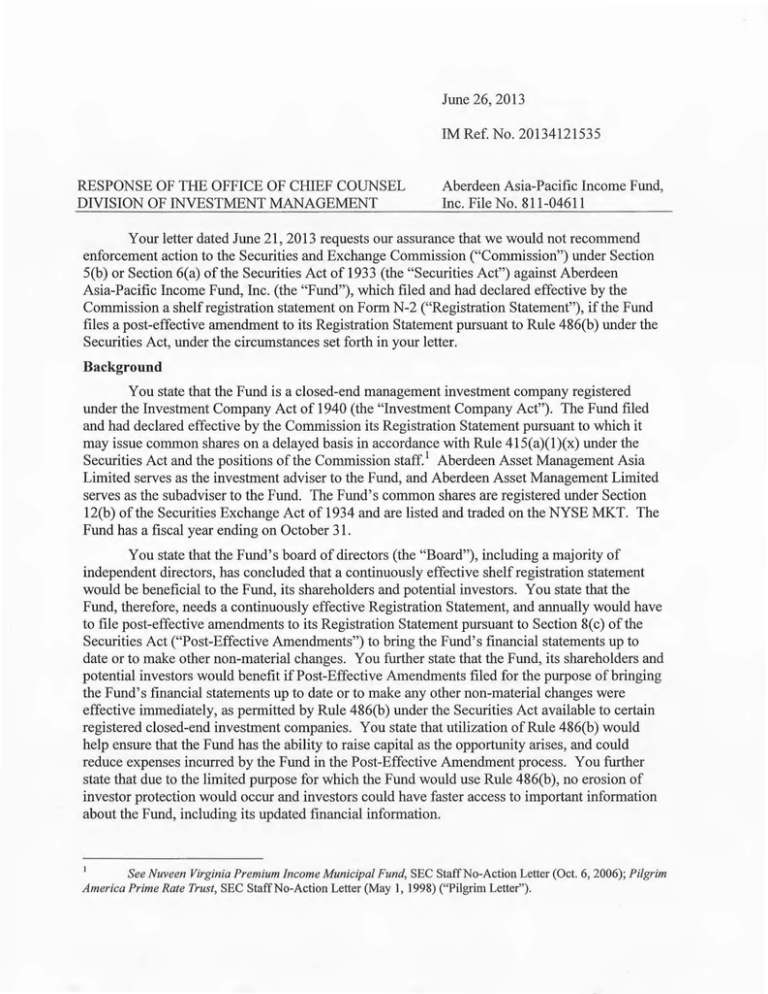
June 26, 2013 IM Ref. No. 20134121535 RESPONSE OF THE OFFICE OF CHIEF COUNSEL DIVISION OF INVESTMENT MANAGEMENT Aberdeen Asia-Pacific Income Fund, Inc. File No. 811-04611 Your letter dated June 21, 2013 requests our assurance that we would not recommend enforcement action to the Securities and Exchange Commission ("Commission") under Section 5(b) or Section 6(a) ofthe Securities Act of 1933 (the "Securities Act") against Aberdeen Asia-Pacific Income Fund, Inc. (the "Fund"), which filed and had declared effective by the Commission a shelf registration statement on Form N-2 ("Registration Statement"), if the Fund files a post-effective amendment to its Registration Statement pursuant to Rule 486(b) under the Securities Act, under the circumstances set forth in your letter. Background You state that the Fund is a closed-end management investment company registered under the Investment Company Act of 1940 (the "Investment Company Act"). The Fund filed and had declared effective by the Commission its Registration Statement pursuant to which it may issue common shares on a delayed basis in accordance with Rule 415(a)(1)(x) under the Securities Act and the positions of the Commission staff. 1 Aberdeen Asset Management Asia Limited serves as the investment adviser to the Fund, and Aberdeen Asset Management Limited serves as the subadviser to the Fund. The Fund's common shares are registered under Section 12(b) of the Securities Exchange Act of 1934 and are listed and traded on the NYSE MKT. The Fund has a fiscal year ending on October 31. You state that the Fund's board of directors (the "Board"), including a majority of independent directors, has concluded that a continuously effective shelf registration statement would be beneficial to the Fund, its shareholders and potential investors. You state that the Fund, therefore, needs a continuously effective Registration Statement, and annually would have to file post-effective amendments to its Registration Statement pursuant to Section 8(c) of the Securities Act ("Post-Effective Amendments") to bring the Fund's financial statements up to date or to make other non-material changes. You further state that the Fund, its shareholders and potential investors would benefit if Post-Effective Amendments filed for the purpose of bringing the Fund's financial statements up to date or to make any other non-material changes were effective immediately, as permitted by Rule 486(b) under the Securities Act available to certain registered closed-end investment companies. You state that utilization of Rule 486(b) would help ensure that the Fund has the ability to raise capital as the opportunity arises, and could reduce expenses incurred by the Fund in the Post-Effective Amendment process. You further state that due to the limited purpose for which the Fund would use Rule 486(b), no erosion of investor protection would occur and investors could have faster access to important information about the Fund, including its updated financial information. See Nuveen Virginia Premium Income Municipal Fund, SEC StaffNo-Action Letter (Oct. 6, 2006); Pilgrim America Prime Rate Trust, SEC StaffNo-Action Letter (May I, 1998) ("Pilgrim Letter"). Discussion Rule 486(b) under the Securities Act, in relevant part, states that a post-effective amendment to a registration statement filed by a registered closed-end management investment company which makes periodic repurchase offers under Rule 23c-3 under the Investment Company Act ("Interval Fund") shall become effective on the date on which it is filed with the Commission, provided that certain conditions are met. The conditions of Rule 486(b) require, among other things, that the post-effective amendment be filed for no purpose other than, among other things, bringing the financial statements up to date or making non-material changes, and that the registrant make certain representations concerning the purpose for which the amendment is filed . In adopting Rule 486(b) in 1994, the Commission recognized that Interval Funds may have a need to raise capital continuously, and therefore need continuously effective registration statements and would benefit if certain filings could become effective automatically. 2 The Commission staff in 1998 recognized that registered closed-end management investment companies such as the Fund, which are not Interval Funds, also may benefit from the flexibility to take advantage of favorable market conditions to raise additional capital through continuous or delayed offerings of their securities. 3 You assert that the Fund and its shareholders also would benefit if the Fund's Post-Effective Amendments that comply with the conditions of Rule 486(b) could become effective immediately pursuant to that Rule. You represent that each filing made in reliance on the requested relief would be made in compliance with the conditions of Rule 486(b), and that the Fund will file a Post-Effective amendment containing a prospectus pursuant to Section 8(c) of the Securities Act prior to any offering of its common shares at a price below net asset value. You also represent that in relying on the requested relief to sell common shares, the Fund will sell newly issued shares at a price no lower than the sum of the Fund's net asset value plus the per share commission or underwriting discount. 4 Conclusion Based on the facts and representations set forth in your letter, we would not recommend that the Commission take any enforcement action under Section 5(b) or Section 6(a) ofthe Securities Act against the Fund ifthe Fund files Post-Effective Amendments to its Registration Statements pursuant to Rule 486(b) under the Securities Act. This response expresses our view on enforcement action only and does not express any legal or interpretive conclusion on the issues presented. Because our position is based upon all of the facts and representations in your 2 See Post-Effective Amendments to Investment Company Registration Statements, Investment Company Act Release No. 20486 (Aug. 17, 1994), n.22 and accompanying text. An Interval Fund operates pursuant to a fundamental policy that requires the Interval Fund to make periodic offers to repurchase its common stock in an amount not less than five percent of the outstanding shares. See Rule 23c-3 under the Investment Company Act. These repurchase offers may create a need for the Interval Fund to replenish its assets by making a continuous or intermittent offering of its common stock. See Continuous or Delayed Offerings by Certain Closed-End Management Investment Companies; Automatic Effectiveness of Certain Registration Statements and Post-Effective Amendments, Investment Company Act Release No. 19391 (Apr. 7, 1993). See Pilgrim Letter, supra note 1, at n.12 and accompanying text. 4 See Pilgrim Letter, supra note 1, at n.4 and accompanying text. 2 letter, any different facts or representations may require a different conclusion. 5 We note that the Fund has acknowledged that the staff may withdraw any assurance granted in this letter if the staff finds that the Fund is misusing Rule 486(b) or for any other reason. w,'-'~ Adam Glazer Senior Counsel The Division oflnvestment Management generally permits third parties to rely on no-action or interpretive letters to the extent that the third party's facts and circumstances are substantially similar to those described in the underlying request for a no-action or interpretive letter. See Informal Guidance Program for Small Entities, Investment Company Act Release No. 22587 (Mar. 27, 1997), n.20. In light ofthe very fact-specific nature ofthe Fund's request, however, the position expressed in this letter applies only to the Fund, and no other entity may rely on this position. The staff is willing to consider similar requests from other registered closed-end management investment companies. 3 June 21, 2013 Mr. Douglas Scheidt, Esq. Associate Director and Chief Counsel Division of Investment Management United States Securities and Exchange Commission 100 F Street, N.E. Washington, DC 20549 Dear Mr. Scheidt: On behalf of Aberdeen Asia-Pacific Income Fund, Inc. (the "Fund"), we seek assurance that the staff of the Division of Investment Management (the "Staff') will not recommend enforcement action against the Fund to the Securities and Exchange Commission (the "Commission") under Section 5(b) or Section 6(a) of the Securities Act of 1933, as amended (the "Securities Act"), if the Fund utilizes Rule 486(b) under the Securities Act to file post-effective amendments to its registration statements in satisfaction ofthe undertakings contained in its registration statements under the circumstances set forth in this letter. I. Background The Fund is a closed-end management investment company that is registered under the Investment Company Act of 1940, as amended (the "Investment Company Act"). The Fund's shares of common stock are registered under Section 12(b) of the Securities Exchange Act of 1934, as amended, and are listed and traded on the NYSE MKT. Aberdeen Asset Management Asia Limited serves as the Fund's investment adviser, and Aberdeen Asset Management Limited serves as the Fund's subadviser. The Fund has a fiscal year end of October 31. The Fund has filed and had declared effective by the Commission a shelf registration statement on Form N-2 pursuant to which it has registered, and may issue, shares of common stock in accordance with the terms of Rule 415(a)(l )(x) under the Securities Act and the positions of the Staff articulated in Pilgrim America Prime Rate Trust, SEC StaffNo-Action Letter (May 1, 1998) and Nuveen Virginia Premium Income Municipal Fund, SEC StaffNo-Action Letter (October 6, 2006) ("Nuveen I"). The Commission initially declared effective the Fund's shelf registration statement on Form N-2 (File Nos. 333-182564; 811-04611) on August 17,2012. The Fund subsequently filed a post-effective amendment to its shelf registration statement on February 1, 2013 to update its financial statements in accordance with Rule 3-18 of Regulation S-X. This post-effective amendment was reviewed by the Commission and declared effective on February 28, 2013. 9146611.4 Mr. Douglas Scheidt June 21, 2013 Page 2 The Board of Directors (the "Board") of the Fund, including a majority of the independent directors, has concluded that the continued ability to raise capital through the public offering of additional securities on a delayed and continuous basis is beneficial to the Fund and its stockholders. The Board has also concluded that a continuously effective shelf registration statement is beneficial to the Fund, its stockholders and potential investors. As discussed below, however, the Fund is subject to the risk of being unable to sell securities pursuant to its effective shelf registration statements for significant portions of each year due to the post-effective amendment process currently required to bring the Fund's financial statements up to date. The post-effective amendment process requires the Commission to review and declare effective any post-effective amendments filed to a shelfregistration statement in order to bring the Fund's financial statements up to date. The Board believes that the Fund, its stockholders and potential investors would benefit if the Fund were allowed to utilize Rule 486(b) under the Securities Act, which is available only to a certain category of registered closed-end investment companies, 1 to file post-effective amendments to its shelf registration statements that would become effective immediately, primarily for the purposes of updating its financial statements or making non-material changes. Investors would benefit from the Fund's ability to raise capital in continuous offerings of its securities at non-dilutive prices, without potentially significant periods of disruption to such offering process. In addition, Fund stockholders could benefit from considerable cost savings, as expenses incurred in respect of the current post-effective amendment process can be significant. Due to the limited purpose for which the Fund proposes to use Rule 486(b ), no erosion of investor protections would occur. II. Discussion Section 5(b)(1) ofthe Securities Act makes it unlawful for any person directly or indirectly to transmit, through interstate commerce, a prospectus relating to any security with respect to which a registration statement has been filed, unless the prospectus meets the requirements of Section 10 of the Securities Act. Similarly, Section 5(b)(2) of the Securities Act makes it unlawful for any person directly or indirectly to carry or cause to be carried any security for the purpose of sale or delivery, unless preceded or accompanied by a prospectus that meets the requirements of Section 10( a) of the Securities Act. Section 1O(a)( 1) of the Securities Act, in pertinent part, states that a prospectus relating to a security other than a security issued by a foreign issuer shall contain the information contained in the issuer's registration statement. Section 1O(a)(3) states that, notwithstanding Section 1O(a)(l), a prospectus that is used more than nine months after the effective date of the registration statement must have information as of a date not more than sixteen months prior to such use, so far as the information is known to the user of the prospectus or can be furnished by the user ofthe prospectus without unreasonable effort or expense (a "10(a)(3) Prospectus"). 1 The Fund is not organized as an interval fund pursuant to Rule 23c-3 under the Investment Company Act, and therefore Rule 486(b) is not currently available to the Fund. 9146611.4 Mr. Douglas Scheidt June 21,2013 Page 3 Open-end management investment companies ("Open-end Funds"), unit investment trusts, and face-amount certificate companies are required by Section 24( e) of the Investment Company Act to use a 10(a)(3) Prospectus that does not vary from the latest prospectus filed as part of a post-effective amendment to the fund's registration statement. Open-end Funds satisfy this requirement by tiling a post-effective amendment pursuant to Rule 485, which provides for automatic or immediate effectiveness. 2 Notably, however, Section 24(e) does not apply to closed-end management investment companies, and there is no statutory requirement mandating that a closed-end fund make such a post-effective filing. 3 Instead, Rule 415(a)(3) requires a registrant that is an investment company filing on Form N-2 (the registration statement utilized by closed-end funds) to furnish the undertakings required by Item 34.4 of Form N-2. Item 34.4.a of Form N-2 requires a closed-end fund to undertake "to file, during any period in which offers or sales are being made, a post-effective amendment to the registration statement: (1) to include any prospectus required by Section 10(a)(3) ofthe 1933 Act." The Fund has made this undertaking in its effective registration statement. As a consequence, the Fund currently is required to file a post-effective amendment on an annual basis to update its shelf registration statement with its audited financial statements in accordance with this undertaking, as well as to make any non-material updates. The Fund currently satisfies this undertaking by filing a post-effective amendment with the Commission pursuant to Section 8( c) of the Securities Act. Section 8(c) does not provide a mechanism for automatic 4 effectiveness. A post-effective amendment filed pursuant to Section 8(c) must be declared effective by the Staff in order to take effect. This process subjects the filings to Staff review and comment, including for routine non-material amendments, which can be a lengthy process. Prior to the post-effective amendment being declared effective by the Staff, the Fund cannot issue shares of common stock pursuant to it, thereby potentially preventing the Fund from taking advantage of what may be an attractive market to raise assets for the benefit of Fund stockholders. Closed-end funds that are operated as interval funds pursuant to Rule 23c-3 under the Investment Company Act are not subject to these delays. Rule 486(b) provides that a post­ effective amendment to an effective registration statement, or a registration statement for additional shares of common stock, filed by a registered closed-end management investment company or business development company which makes periodic repurchase offers under Rule 23c-3 under the Investment Company Act ("Interval Funds") shall become immediately effective on the date it is filed, or on a later date designated by the registrant that is no more than 30 days 2 Rule 485( a) penn its automatic effectiveness after the passage of a specified period oftime. Rule 485(b) provides for immediate effectiveness of filings made for certain purposes, including, among other things, updating financial statements and making non-material changes. 3 See Section 24(e) of the Investment Company Act; L. Loss & J. Seligman, Securities Regulation, 566 (3rd ed. 1998). 4 But see supra note 2 and accompanying text for a discussion of Rule 485, which provides for automatic and immediate effectiveness for Open-end Funds. 9146611.4 Mr. Douglas Scheidt June 21, 2013 Page 4 after the filing is made, provided that the post-effective amendment or registration statement is filed solely : (i) to register additional shares of common stock for which a registration statement filed on Form N-2 is effective, (ii) to bring the financial statements up to date under section 1O(a)(3) of the Securities Act or rule 3-18 of Regulation S-X, (iii) to designate a new effective date for a previously filed post-effective amendment or registration statement for additional shares under Rule 486(a), which has not yet become effective, (iv) to disclose or update the information required by Item 9c of Form N-2, 5 (v) to make any non-material changes the registrant deems appropriate, and (vi) for any other purpose the Commission shall approve. In the adopting release for Rule 486, the Commission stated that "[t]he initial proposal of rule 486 recognized that closed-end interval funds may need continuously effective re~istration statements and would benefit if certain filings could become effective automatically." The Fund believes that this line of reasoning should be extended to it as a closed-end fund that is conducting offerings pursuant to Rule 415(a)(l)(x). Recently, your office has concurred with this approach. In Nuveen Municipal High Income Opportunity Fund, SEC StaffNo-Action Letter (Nov. 9, 2010) ("Nuveen II"), Calamos Convertible Opportunities and Income Fund, SEC StaffNo-Action Letter (Feb. 14, 2011) and Aberdeen Australia Equity Fund, Inc., SEC StaffNo-Action Letter (April 12, 2012), the Staff granted no-action assurances to three closed-end fund complexes that were engaged in a delayed or continuous offering pursuant to Rule 415(a)(l)(x). In the letters, the Staff agreed not to recommend enforcement action to the Commission under Sections 5 and 6(a) of the Securities Act based on the representation that the respective funds' board of directors approved the funds' delayed or continuous offerings, the representation that each fund's post-effective amendments would comply with the conditions of Rule 486(b), and the representation that each fund would file a post-effective amendment containing a prospectus pursuant to Section 8(c) of the Securities Act prior to any offering of its common stock at a price below net asset value. Your office has stated that, "[i]n light ofthe very fact specific nature" ofthe requests, this relief is limited on its face to the addressees of the no-action letters. Your office has also stated, however, that it "is willing to consider similar requests from other registered closed-end management investment companies." We submit that the facts presented by the Fund in this request are similar to those presented in the Nuveen II, Calamos and Aberdeen letters. As was the case with each of the funds in the Nuveen II, Calamos and Aberdeen letters, the Fund's Board, including a majority of its independent directors, has concluded that the continued ability to raise capital through the 5 We note that Form N-2 does not have, and has never had, an "Item 9c." Based upon a review of the administrative history of Rule 486, we believe that this should be a reference to Item 9.l.c. of Form N-2, which relates to information regarding individual portfolio managers. Accordingly the Funds plan to treat the reference to "Item 9c" as a reference to Item 9.l.c. of Form N-2. 6 Post-Effective Amendments to Investment Company Registration Statements, SEC Rei. No. 33-7083 (Aug. 17, 1994). 9146611.4 Mr. Douglas Scheidt June 21,2013 Page 5 public offering of additional shares of common stock on a delayed and continuous basis would benefit the Fund and its stockholders. In addition, the Board has concluded that a continuously effective shelf registration statement would be beneficial to the Fund, its stockholders and potential investors. In furtherance of these conclusions, the Fund has an effective registration statement on file with the Commission pursuant to which the Fund may issue shares of common stock on a delayed and continuous basis in accordance with Rule 415(a)(l)(x) under the Securities Act and the positions of the Commission staff in the Nuveen I and Pilgrim letters. As is the case with Interval Funds, the Fund and its common stockholders would also benefit from having continuously effective registration statements. The ability to utilize Rule 486(b) under the Securities Act would have significant benefits for the Fund and its investors: • The Fund would have the ability to raise capital as the opportunity arises; • The Fund could reduce the expenses it presently incurs as part of the registration statement review and comment process, thus benefiting shareholders; and • Investors could have faster access to important information about the Fund including its updated financial information. In addition, because the ability to rely on Rule 486(b) would only permit the Fund to update its financial statements, or to make non-material changes to its registration statements, the Fund believes that the public policy of protecting investors would be safeguarded. The Fund represents that each filing made in reliance on the requested relief would be made in compliance with the conditions of Rule 486(b), and that the Fund will file a post-effective amendment containing a prospectus pursuant to Section 8(c) of the Securities Act prior to any offering of its common stock at a price below net asset value. In relying on the requested relief to sell shares of common stock, the Fund will sell newly issued shares at a price no lower than the sum of the Fund's net asset value plus the per share commission or underwriting discount. 7 The Fund would utilize Rule 486(b) to file post-effective amendments only to: (1) bring the financial statements of the Fund up to date under Section 10(a )(3) of the Securities Act or rule 3-18 of Regulation S-X; (2) update the information required by Item 9.1.c of Form N-2; or 8 (3) make any non-material changes the registrant deems appropriate. III. Conclusion In light of the forgoing, we seek your assurances that the Staff will deem the Fund to have complied with its undertaking provided in response to Item 34.4.a of Form N-2, and will not recommend enforcement action against the Fund to the Commission under Section 5(b) or 7 8 See Calamos Convertible Opportunities and Income Fund, SEC Staff No-Action Letter (Feb. 14, 20 II). The Fund would not seek to use a filing made in accordance with Rule 486(b) to register additional securities without first obtaining relief from Rule 413 under the Securities Act. 9146611.4 Mr. Douglas Scheidt June 21,2013 Page 6 Section 6(a) of the Securities Act if the Fund utilizes Rule 486(b) of the Securities Act, under the circumstances set forth above. The Fund acknowledges that the Staff may withdraw any assurance granted in response to this letter if the Staff finds that the Fund is misusing Rule 486(b), or for any other reason. Please contact the undersigned at (212) 728-8215, with any questions or comments regarding this letter. Sincerely,

